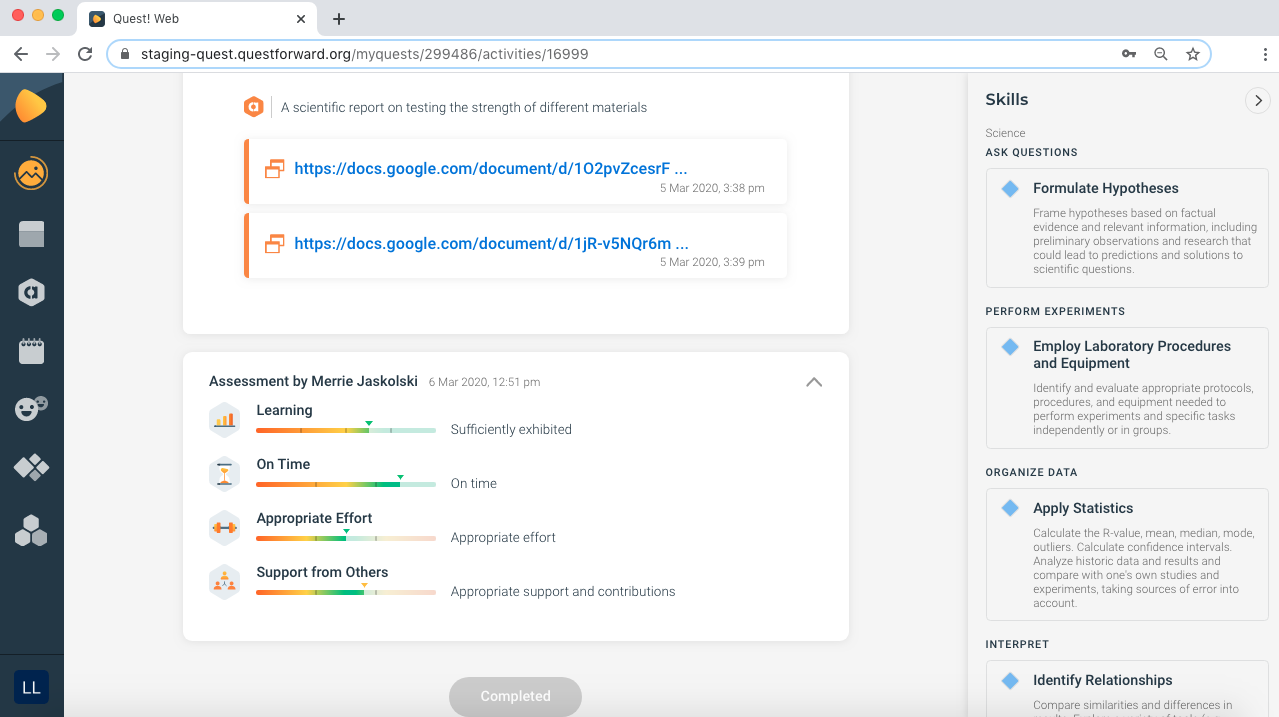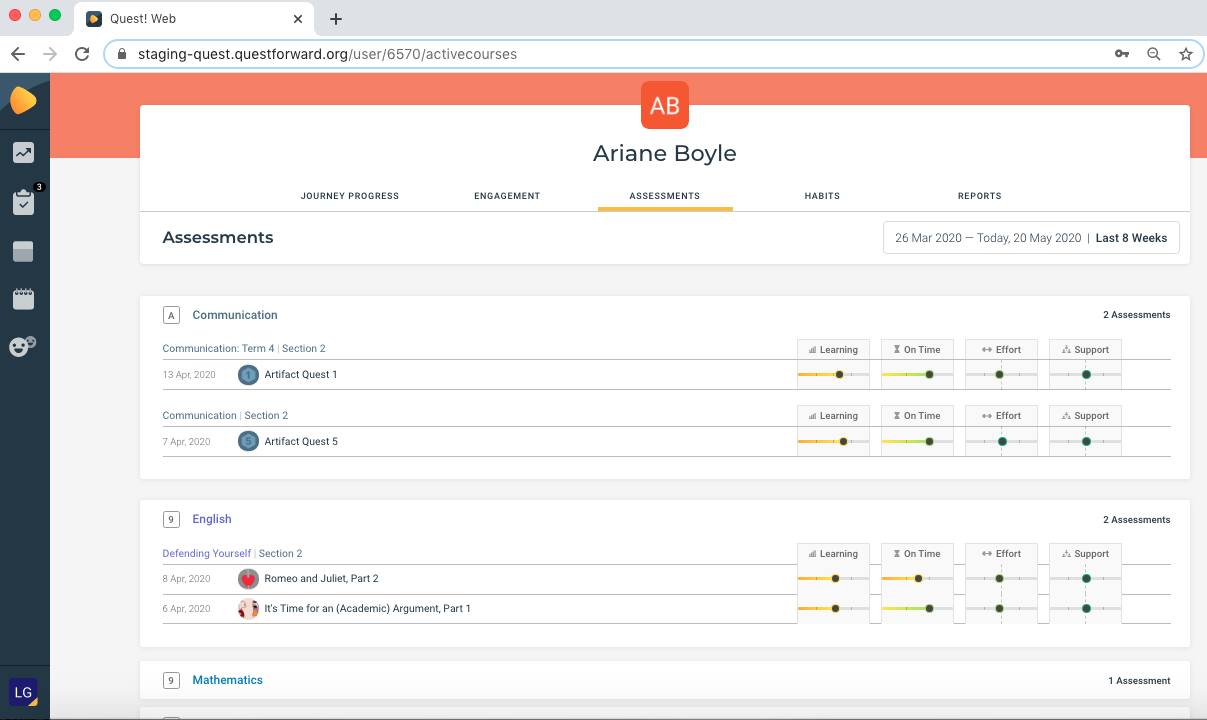The End of Grades: A Better Approach for Assessing Student Work
In the COVID-19 era, most school districts are struggling with grading policies, colleges are dropping testing requirements, and students have the option to switch to pass/fail results instead of letter grades. With all this, it’s time to ask “are grades actually useful for learning? Is this the end of grades as we know them?”
Arguments often cited for grades include providing students with feedback on their learning, motivating students to do their best, and helping students demonstrate their capabilities. And yet it is also easy to see how grades might not be useful for learning.
Grades train students to be risk-averse. They become an extrinsic goal in themselves, and they don’t offer useful feedback. They also become a constant source of anxiety for students and parents.
Surely there is a better way.
With our Quest Forward Learning program, we’ve designed an approach to assessment that delivers more growth and performance data on students while offering useful feedback to students on their work. Here’s how:
Teachers assess student work products — “artifacts” as we call them — in four distinct dimensions:
- Did the student meet the learning goals related to the artifact?
- Did the student produce the artifact within the required timeline?
- Did the student apply appropriate effort to creating the artifact?
- Did the student use the resources and support around them effectively?
Teachers provide a score of 1-4 for each dimension, and then meet with the student to provide feedback on the artifact and to discuss the scores. In this way, teachers still generate quantitative data on student performance, but do so in a student-first manner that supports learning and growth.

Teachers record their artifact assessment scores in the Quest Forward Learning management system, which visualizes results and provides longer-term trend data on each student’s performance. The scores also feed an algorithm that can calculate letter or numeric grades for transcripts needed for college applications.

Our approach seems to work, providing the information people look to with grades while limiting the harmful side effects. The approach has two big payoffs:
- It helps students achieve academically and practice real agency in their education.
- It also provides insightful data to teachers and school administrators on student learning and growth.
By keeping assessment formative and driven by actual student work, this approach eliminates the anxiety associated with high stakes exams. It also encourages students to challenge themselves and take the risks they need to fully develop their capabilities.
While the end of grades won’t come soon, new approaches like ours show how we’ll get there.
Keep up with our latest research on assessment, project-based learning, habit building by following Opportunity Education on LinkedIn.
